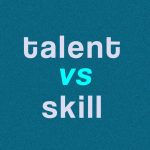The Biggest Hurdles Recent Graduates Face Entering the Workforce

Why Many Fresh Grads Struggle at Work (And What Companies Can Do About It)
“College prepared me for the job… or so I thought.”
For many fresh graduates, stepping into the working world feels like hopping into a foreign country without a map. One day, they’re submitting assignments and checking grades — the next, they’re navigating office politics, vague expectations, and silent Slack threads.
It doesn’t just affect the grads. It affects organizations, too. Companies invest time and resources hiring and training new talent — but often overlook the cultural adjustment fresh graduates need to succeed. Instead of sprinting off the starting line, many grads feel like they’re navigating a maze in the dark.
Let’s unpack the three biggest hurdles young professionals face, and how organizations can support them through this major life transition.
1. Feedback: The Missing Ingredient
In college, feedback is clear-cut: syllabi, grades, rubrics. You hand in work, get a grade, and know exactly where you stand.
Workplace feedback? Not so much.
Suddenly, feedback is ambiguous, infrequent, and often sugarcoated. Some managers offer great, timely insights. Others might say a quick “good job” or wait until a once-a-year performance review. It leaves many young professionals unsure: “Am I doing this right? Do I need to improve? What does ‘great work’ even look like here?”
Worse, most grads haven’t practiced receiving direct feedback in person. In university, feedback is usually written and impersonal. At work, it’s face-to-face and layered with nuance.
🔹 What companies can do: Normalize regular feedback. Train managers to give clear, helpful input — and teach new hires how to ask for it. Feedback shouldn’t be a scary mystery.
2. Relationships: From Friends to Colleagues
In school, relationships grow organically — you choose your friends and professors, and rarely interact outside your comfort zone.
At work? You must learn to build strategic, cross-generational, and sometimes uncomfortable relationships. That includes your boss (who now holds your future in their hands), team members of different ages and personalities, and even difficult clients.
There’s also a new layer of accountability: Your interactions affect your reputation across departments. No more skipping the professor you didn’t like — now you must manage difficult relationships professionally.
🔹 What companies can do: Help new hires understand the purpose of workplace relationships. Assign onboarding buddies. Facilitate networking across roles. Talk openly about how to navigate conflict professionally.
3. Accountability: From Self to Team
In university, the focus is on your own learning and grades. Even in group projects, your individual grade still matters most.
But in the workplace, you’re accountable to a much wider audience — your manager, team, clients, and the organization as a whole. Mistakes carry real consequences. There’s no asking for extra credit or doing a makeup assignment.
Many grads feel the weight of this shift. They don’t want to mess up. But without clear guidance and support, they may also hesitate to take initiative or ownership.
🔹 What companies can do: Set clear expectations, but also normalize mistakes as part of growth. Create a psychologically safe environment where asking questions and trying new things is encouraged.
So, What’s the Fix?
Treat the jump from college to career like a cultural transition. Because it is.
Smart organizations:
- Talk openly about the differences.
- Provide mentorship with someone who remembers the transition.
- Help new hires build soft skills they didn’t get in lectures.
- Train existing staff to show empathy rather than assume entitlement.
New grads also have a role to play: recognizing the skills gap and actively seeking growth. The book smarts got them through school. Now it’s time to learn the unwritten rules of the workplace.
Here’s Where We Come In:
At Elite Career Centre, we specialize in helping companies bridge the gap between education and the workforce.
Our soft skills training, onboarding support, and cultural integration programs are designed to ease this transition — for both recent graduates and the teams welcoming them.
Because when young professionals thrive, everyone wins.




















